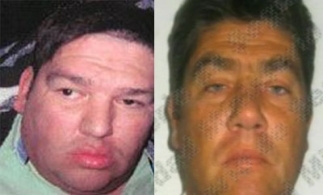The record seizure of hundreds of millions of dollars of assets in Colombia has raised the question of how two brothers linked to the Norte del Valle Cartel built up such power while remaining under the radar of the authorities.
The case of the Alvarez Meyendorff brothers, apparent allies of some of the most notorious drug traffickers in Colombia’s recent history, has cast suspicions on several top Colombian politicians, and demonstrated that it is not always the most famous players who wield the most power in the international drug trade.
According to reports, Ignacio Alvarez Meyendorff — all but unknown to the public until his arrest in Argentina in 2011 — and younger brother Juan Fernando, who turned himself over to US authorities in April, worked closely with now-imprisoned drug traffickers including Daniel “El Loco” Barrera, leaders of the Rastrojos drug trafficking organization, and Víctor Patiño Fomeque, a key player in the defunct Cali and Norte Del Valle cartels.
Yet the full extent of their influence was unknown until the recent confiscation of over 200 properties across ten of Colombia’s 32 departments, with an estimated value in excess of $700 million, leading the official responsible for the raids to describe it as “the biggest blow inflicted in the history of the Attorney General.” With 80 more properties coming under scrutiny, as well as 65 in Argentina, the total value of the brothers’ assets could exceed $1 billion.
Among those to appear on the titles of confiscated properties is former Senator and former President of Congress Dilian Francisca Toro, currently under detention amid an investigation into alleged money laundering and links to Patiño. Other implicated politicians include former Senator Otto Nicolas Bula, who appears on the titles of two luxury properties, and Jorge E. Gomez, a former senator and well-known religious leader, who appears on six.
InSight Crime Analysis
The Meyendorff brothers are reported to have emerged in the Colombian underworld during the 1990s under the guidance of Victor Patiño. This explains their links to the Norte del Valle Cartel and the Rastrojos, which both owe their origins to the Cali Cartel. By the 2000s, the Meyendorffs were working alongside Luis Agustin Caicedo Velandia, alias “Don Lucho,” and, according to El Espectador, operating “on the same level” as Daniel Barrera, prior to his September 2012 arrest in Venezuela.
Alongside Don Lucho, Barrera and emerald trader Julio Lozano Pirateque, the brothers formed the so-called “El Dorado Cartel,” described by US authorities as a “drug trafficking board of directors,” which was apparently responsible for shipping up to eight tons of cocaine to the US and Europe each month. Ignacio has been described as the “financial brain” of the pair, while Juan Fernando, known as “Mechas,” was responsible for overseeing drug shipments and apparently pioneered the use of “narco subs” to move drugs northwards.
The manner with which the two brothers were able to escape the notice of authorities for so long will be of some concern to both Colombian and US law enforcement. The pair joined the thriving community of expat drug lords living in Argentina in the mid-2000s, as the security forces cranked up the pressure on the drug trade within Colombia. Until his arrest, Ignacio had openly lived with his family in an upscale neighbourhood of Buenos Aires since 2005, where he built up and managed an extensive portfolio of business interests used to launder money. In 2008, he faced money laundering charges in Colombia but, according to Clarin, wrangling over how to process the case prevented its progress.
The trail leading investigators to the Meyendorffs apparently began to emerge once an investigation into the finances of Bogota soccer club Santa Fe led to Don Lucho, arrested in June 2010, who had also been living undetected in Argentina. It has since been suggested that Don Lucho was the real power behind Barrera.
It is unclear whether Don Lucho gave the brothers up, or whether investigators had been building a case against the Meyendorffs for some time. What is certain is that, alongside Don Lucho, the brothers remained largely unnoticed as they laundered up to $1.5 billion through Colombian soccer clubs, while Juan Fernando is accused of overseeing the shipment of some 68 tons of cocaine to the US between 2005 and 2010.
Following his April 2011 arrest at an airport in northern Argentina, Ignacio was deported back to Colombia, where he awaits extradition to the US. Juan Fernando evaded capture until handing himself over to DEA agents in Haiti this year.
While it is difficult to say exactly how the brothers amassed such wealth undetected, their move abroad was likely a key factor. It is possible that they saw other major Colombian drug traffickers elect to leave the country, and were savvy enough to follow suit before becoming major targets.
It is also possible that the assets recovered by Colomba’s Attorney General’s Office were not all purchased with their own funds, but were intermingled with Patiño’s. The property incriminating former head of Congress Dilian Toro has been linked to both Ignacio Meyendorff and Patiño, raising the possibility that Patiño used Ignacio’s low profile to cover some of his own illicit profits.
Also unclear is the extent of the brothers’ political connections. With prominent political figures already exposed by the investigation, it remains to be seen who else might be dragged into the limelight once Ignacio arrives in the US and begins talking to prosecutors.

